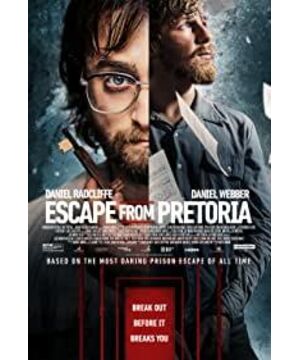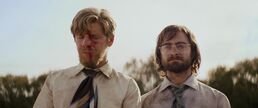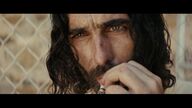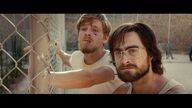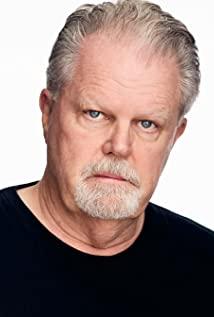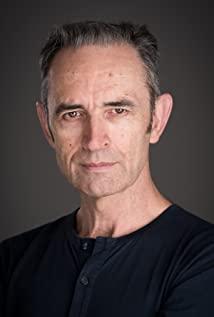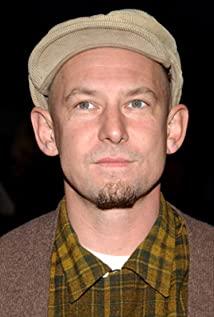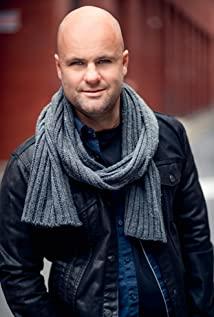Although it is based on real events, the description of anti-racial discrimination only includes the narration at the beginning and the end, as well as the attitude of the prison guards towards black prisoners. The rest of the time is basically about how to escape from the prison, and it is not too deep. The discussion and reflection, even the prison break, I went to prison, I want freedom, I want to escape, it feels like a simple prison break film, there is not much to remember.
And this escape is also full of coincidences, a bit too deliberate, maybe because of the shooting method, from the key breaking, to the night when the key of the revolving shaft fell off, and then the main character group conversation was almost overheard by the prison guards, and then the broken key was found. , even the protagonist group escaped to hide in the utility room for the last time, and it was only with the help of the inmates who wanted to do it temporarily. As such, under the premise that there was only one chance to escape from prison, the protagonist group escaped repeatedly. It is true that there is some element of luck. Yes, but the director is not creating a tense atmosphere, but creating a fright! Also because of this kind of fright, the protagonist group performed a little too hard, but it diluted the tension of the prison escape process. The rhythm of the first half was relatively boring, and the atmosphere of the opening chapter did not well connect with the plot of the prison behind; and This kind of jailbreak really only had a chance to succeed in that era, and it was carried out with integrity and without monitoring.
But I have to admire the protagonist's brain and hands-on ability. I rely on my eyes to memorize the whole process and copy all the keys. It is estimated that it will not work for anyone else. Generally speaking, as a commercial film, it can barely pass; for anti-racial discrimination The expression of , is more about selling dog meat, just borrowing a theme and event. The director and screenwriter did not express the theme of anti-racial discrimination, but just took it carelessly.
History background:
Pretoria is the administrative capital of South Africa. Named after the Boer leader Andres Pretorius, in March 2005, the city council of Pretoria, the administrative capital of South Africa, voted to change "Pretoria to Tshwane" " motion. Black South Africans believe that Pretoria has a strong "apartheid" color, which is incompatible with the new South Africa that has abolished the apartheid policy for many years . However, white people living in South Africa believe that the passage of the bill violated their civil rights. Thousands of white South Africans took to the streets to protest the renaming of Pretoria to Tshwane.
In fact, the title of the film "Escape from Pretoria" does not necessarily have another meaning, escape from apartheid!
Regarding the political prison for white men in Pretoria, it is actually not correct. Mandela was arrested in 1962 and stayed in Pretoria ; and the 1964 Robben Island incident mentioned in the film refers to, 1964 On June 12, Mandela and his two co-defendants were convicted of four charges, sentenced to life in prison and transferred from Pretoria to prison on Robben Island . And Dennis Goldberg served 22 years in prison and was released in 1985. He was in the same trial as Mandela and Sisulu in the beginning of the movie. The trial time in 1964 also coincided , but the movie said The only thing is that he was sentenced to 60 years in prison and was not transferred to Robben Island Prison. There is a certain discrepancy with history. In fact, the prison should not be as loose as imagined in the film, because in the 1970s it can be said that the struggle between the two sides was relatively fierce. period.
The African National Congress , or ANC for short , is the largest political party in South Africa. The African National Congress was established in Bloemfontein on January 8, 1912, formerly known as the South African Indigenous National Congress . The party's goal is to fight for political and economic rights for blacks in South Africa. The leader of the party is the Rev. John Dober. In 1925, the ANC changed its name to its current name. On June 26, 1955, under the leadership of the ANC, various black, colored and white minority parties jointly issued the "Freedom Charter" in Cripp City, a suburb of Johannesburg. Proclaimed to strive for equal rights for all people, regardless of color or race. (The leaflet that was blown up by the protagonist at the beginning of the film is likely to be printed with the Freedom Charter)
On April 6, 1959, dissatisfied with the ANC's policy of non-violence and non-cooperation, some members independently established the Azania Pan-Africanist Congress, declaring that they would use violence to overthrow the apartheid regime and establish an African-ruled country. South Africa. This is actually consistent with Dennis Goldberg's idea of overthrowing the apartheid government through violent revolution in the film. Dennis is likely to be a member of this organization, but Pan-African Congress is a black nationalist party.
In 1960, the ANC and the Pan-African Congress jointly organized a large rally to protest the implementation of the Pass Act. A serious conflict broke out between the South African government military police and the demonstrators. The military and police then opened fire and suppressed 69 demonstrators, which is known as the "Sharpeville Massacre" in history. Affected by this incident, the ANC was declared an illegal organization and forced to go underground.
The following year, the ANC decided to abandon its non-violent stance and organized the military organization "Spear of the Nation", with Mandela as the commander-in-chief, to carry out armed resistance, which was regarded as a terrorist organization by some Western countries. The protagonists should be members of the ANC's "Spear of the Nation". The armaments used by the spear of the Nation mainly include bombs, AK-47 assault rifles and rocket-propelled grenades, which are also consistent with the use of bombs by the protagonist in the title.
The film's story is set after 1973, the early 1970s, and many aspects, including the military, were low points for the ANC. , but between 1977 and 1980, Nation Spear began a series of extensive military operations, carrying out attacks on several police stations and rural areas, and in the 1980s Nation Spear planned multiple bombings that resulted in many deaths and injuries. The incident; and the use of landmines against white farmers, who were considered legitimate targets by the National Spear because they supported racial segregation. Due to the high rate of civilian casualties caused by this strategy, and the majority of the casualties were black labor, the landmine movement eventually stopped.
The ANC and the Pan-African Congress were not banned until 1990, making the organization legal. The National Spear also announced the cessation of armed struggle in the same year. In November 1993, the National Spear began to integrate with the South African Defense Forces. Until 1994, the Spear of the Nation was officially incorporated into the South African Defence Force.
View more about Escape from Pretoria reviews


